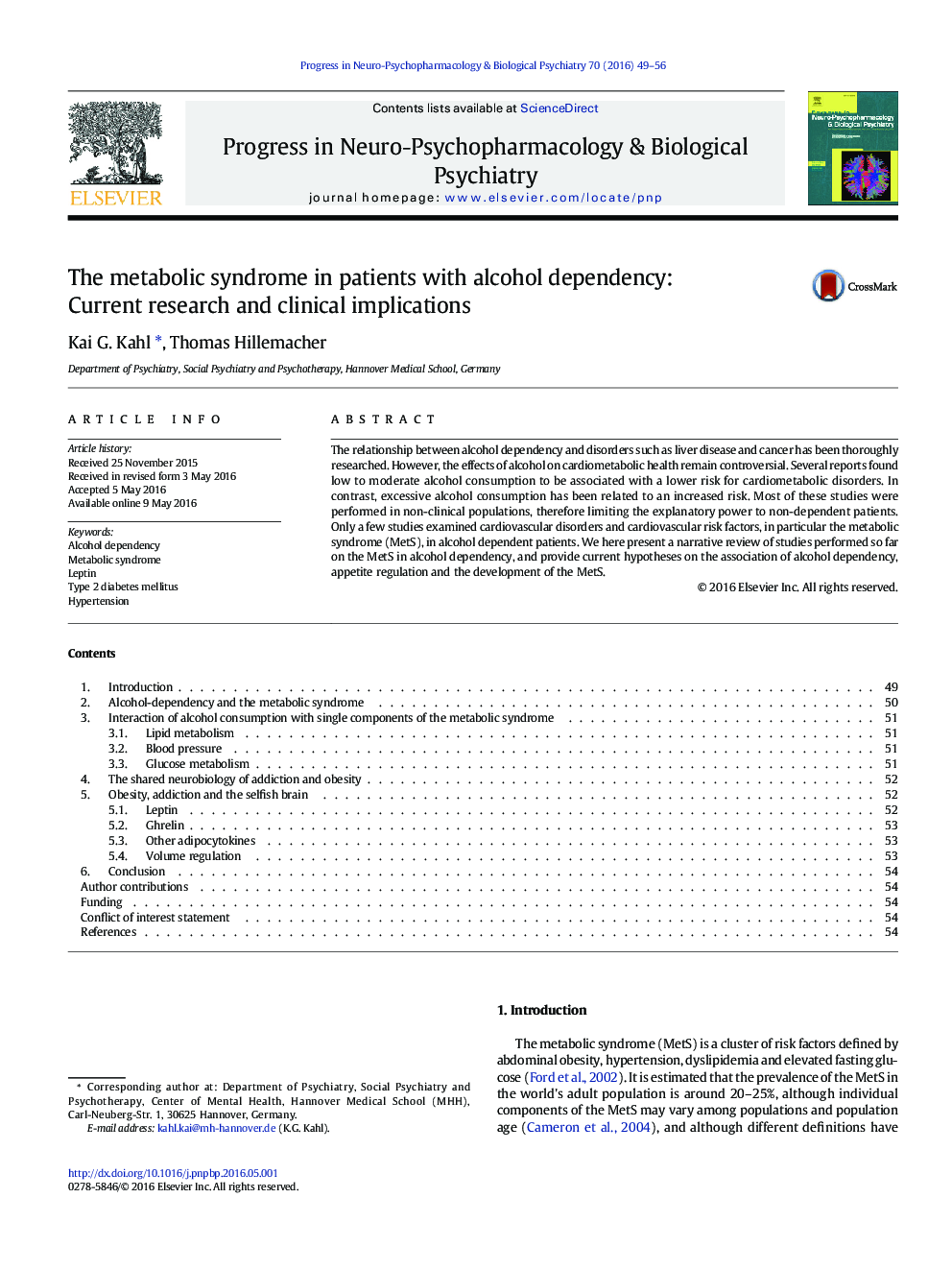| Article ID | Journal | Published Year | Pages | File Type |
|---|---|---|---|---|
| 2564664 | Progress in Neuro-Psychopharmacology and Biological Psychiatry | 2016 | 8 Pages |
•Alcohol dependence is associated with the development of metabolic syndrome.•The selfish brain theory hypothesizes that alcohol may downregulate GLUT1.•This downregulation of GLUT1 may promote the risk for the development of MetS.•Ghrelin, leptin and other adipocytokines are dysregulated in alcohol dependence.•The altered appetite regulation is important for both alcoholism and obesity.
The relationship between alcohol dependency and disorders such as liver disease and cancer has been thoroughly researched. However, the effects of alcohol on cardiometabolic health remain controversial. Several reports found low to moderate alcohol consumption to be associated with a lower risk for cardiometabolic disorders. In contrast, excessive alcohol consumption has been related to an increased risk. Most of these studies were performed in non-clinical populations, therefore limiting the explanatory power to non-dependent patients. Only a few studies examined cardiovascular disorders and cardiovascular risk factors, in particular the metabolic syndrome (MetS), in alcohol dependent patients. We here present a narrative review of studies performed so far on the MetS in alcohol dependency, and provide current hypotheses on the association of alcohol dependency, appetite regulation and the development of the MetS.
